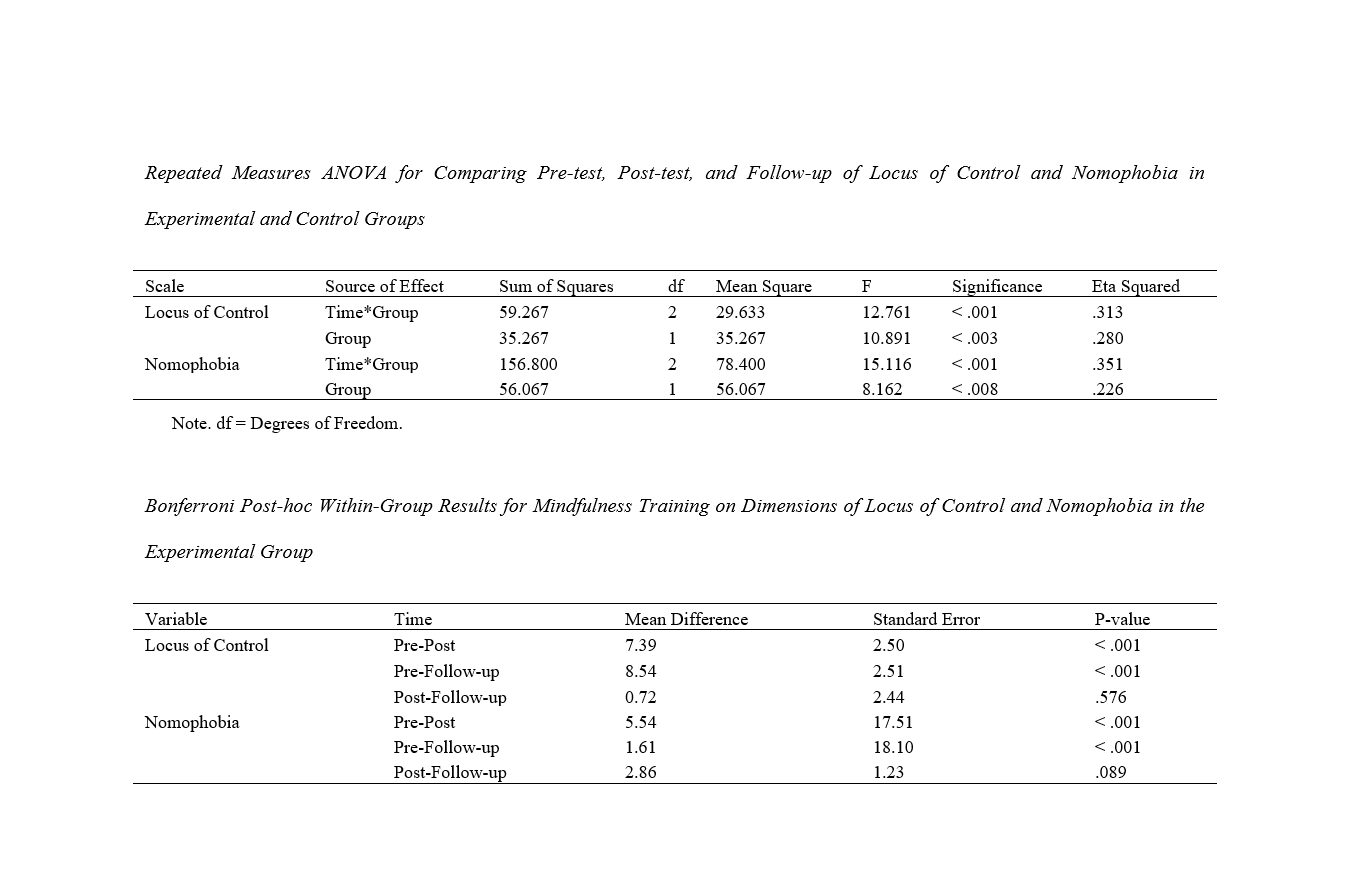Effectiveness of Mindfulness on Locus of Control and Nomophobia in Adolescents with Internet Addiction
Keywords:
Mindfulness therapy, locus of control, nomophobia, internet addictionAbstract
Objective: The expansion of the use of new technologies and cyberspace, including smartphones and tablets, has caused significant changes in people's behaviors and habits. The present study was conducted to investigate the impact of mindfulness therapy on locus of control and nomophobia in adolescents with internet addiction.
Methods and Materials: In a quasi-experimental design with pre-test, post-test, and follow-up with a control group, 30 adolescents with internet addiction in Tehran were selected through convenience sampling and then randomly assigned into two groups: experimental and control (each group consisting of 15 individuals). Subsequently, members of both groups completed the Internet Addiction Questionnaire (Young, 1999), the Nomophobia Questionnaire (Yildirim & Correia, 2015), and the Locus of Control Questionnaire (Rotter, 1966) before starting therapeutic interventions. The experimental group underwent mindfulness therapy in 90-minute sessions once a week for 8 sessions, while the control group did not receive any intervention during this period. The data were analyzed using repeated measures ANOVA with SPSS version 22.
Findings: The results showed that mindfulness therapy had a significant effect on locus of control (F=10.89, P=0.003) and nomophobia (F=8.16, P=0.008) in adolescents with internet addiction.
Conclusion: It can be concluded that mindfulness therapy can improve the locus of control and reduce nomophobia in adolescents with internet addiction, making it an effective therapeutic method in reducing psychological problems in these adolescents.
Downloads

Downloads
Published
Issue
Section
License
Copyright (c) 2024 Fatemeh Zadehasan, Saba Azimiafshar, Elham Mostafavi (Author)

This work is licensed under a Creative Commons Attribution-NonCommercial 4.0 International License.














